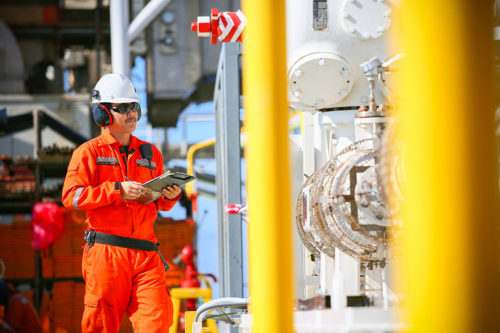

The course will feature:
By the end of this course delegates will be able to:
Reliability Engineers, Maintenance Managers, Engineers & Planners, Reliability and Maintenance Engineers, Facilities and Utilities Managers, Design Engineers, Top Level Maintenance Technicians, OE Champions, Predictive and Preventive Maintenance, Technicians & Supervisors, Planners, Maintenance Supervisors, Crafts and Tradesmen, Operations Supervisors, Process Engineers, Inspectors and Inspection Supervisors, Equipment Engineers Team Leaders and Professionals in Maintenance, Engineering and Production, Maintenance managers, reliability and maintenance Engineers, Production Managers, Plant Engineers, Design Engineers, Reliability Engineers and Technicians, Operators, Safety Engineers, Risk Engineers, Safety Engineers and anyone who is involved in Reliability Engineering strategies or methodologies to include design engineers for capital projects engineers, Foreman and Technicians, Mechanical, Electrical and Operational Personnel, Personnel designated as Planners, Key leaders from each maintenance craft, Key operations personnel, Technical professionals responsible for maintenance and repair of equipment, Professionals involved in inspection and maintenance and repair, professionals involved in asset & maintenance management auditing, Quality & Compliance Managers, Lead Auditors & Audit Team Members, Process Controllers, Maintenance Supervisors, Maintenance Planners, Predictive Maintenance Technicians & Supervisors, Materials Management Managers and Supervisors, Service Company Representatives, Asset owners & Asset Managers
Overview of Safety in Process Design
Inherently Safer Design
Safety of Process Equipment
Design of Pressure Relief Systems
Process Monitoring and Control
CDGA attendance certificate will be issued to all attendees completing minimum of 80% of the total course duration.
| Code | Date | Venue | Fees | Register |
|---|---|---|---|---|
| MI232-02 | 07-06-2026 | Cairo | USD 5450 | |
| MI232-03 | 17-08-2026 | Istanbul | USD 5950 | |
| MI232-04 | 29-11-2026 | Doha | USD 5450 |

Within the boiler, piping and pressure vessel industry, control and safety relief are of Most essential importance. Pressure relief valves are the last line of defense against Catastrophic failure or ...

The Safety in Process Equipment Design & Operation course focuses on the critical importance of process safety in the design, operation, and maintenance of pressure equipment in the Oil & Gas, Chemica ...
Providing services with a high quality that are satisfying the requirements
Appling the specifications and legalizations to ensure the quality of service.
Best utilization of resources for continually improving the business activities.
CDGA keen to selects highly technical instructors based on professional field experience
Since CDGA was established, it considered a training partner for world class oil & gas institution
3012, Block 3, 30 Euro Business Park, Little Island, Co. Cork, T45 V220, Ireland
Mon to Fri 09:00 AM to 06:00 PM
Contact Us anytime!
Request Info